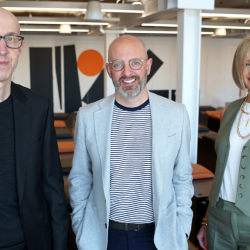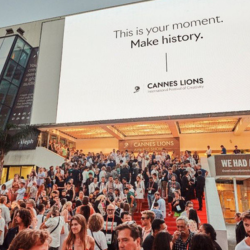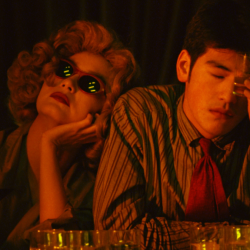When I was in year 10…
My school organized a ‘Take Your Child to Work’ day. I dressed up in my smartest skirt, packed into an overcrowded tube carriage and followed my father to his law firm in the heart of the city. My dad spent the day enthusiastically introducing me to his colleagues and trying to explain some of the finer points of copyright law. However, my clearest memory of the day is watching as my father typed out an email to a client, and watching him carefully deliberate over his sign off. ‘Yours faithfully‘ — too romantic. ‘Best wishes‘ — overly jovial. ‘Kind regards‘ — generic. ‘Warm regards‘ — bingo.
I had a sudden flashback to this moment recently. I was sitting in my office, trying to come up with the perfect response to a client. But I wasn’t writing them an email; I was responding to message they had sent me on Slack. And I wasn’t trying to craft the perfect sign off. I was trying to decide which emoji to react with in order to convey the correct level of appreciation and professionalism. Heart eyes — too intimate. Dancing lady — a little too joyous for a professional setting. The muscle arm felt too performative. In the end, I settled on the raised hands. The client wrote back with an enthusiastic string of fire symbols.
Remembering how my father had gone through similar careful consideration of how to craft his professional communication made my emoji dilemma seem even more ridiculous
What had I just spent the last five minutes of my life overthinking exactly? Why was I using juvenile pictograms to conduct professional communication? Why have we all decided that adding a thumbs up or a smiley face is an appropriate way to sign off a work message?
Sending emojis to clients is just one small thing that makes it harder for me to remember I am a grown up. The world of work looks very different than the future I expected, and that often makes it hard for me to take myself seriously. As I edge towards middle age alongside my fellow millennials, it’s hard to square my current version of ‘being a grown up’ with the concept of adulthood I inherited from my parents, particularly when it comes to my professional life. Like many 30-somethings in the workforce, it’s hard not to feel that my casual clothes and relaxed office space contradict my title and responsibilities.
Of course, technology has a significant role to play in this creeping informality
In the nineties and noughties my dad was navigating the transition from written letters to email, and the new rules and conventions that came with that. Now, my professional peers are moving away from email into more ‘short form’ communication like Slack, Google Chat and Discord. These platforms all seem far too reminiscent of the AOL Chat and MSN Messenger (that I wasted my early teens on) to really feel like they belong in the office. But a constant stream of memes and in-jokes is what office culture looks like these days.
Our physical surroundings also add to the general sense of arrested development
My office looks nothing like the future that films, TV and the occasional glimpses of my parents’ office lives had led me to imagine. There are no suits or high heels or corner offices. That might be the reason that our entire generation suffers from impostor syndrome: it’s hard to feel like a boss when your smart-casual dress code allows you to wear the Urban Outfitters dress you’ve had since Sixth Form (guilty). Of course, the disorientating collapse of professional and private spaces that comes with remote work only adds to this phenomenon.
Does anyone feel grown up anymore? We’ve grown into a very different professional world than the one that we were expecting, and we haven’t yet had time to realign our expectations with our current reality. The secret of adulthood that you never grasp until it’s too late is that there is no magic switch that gets flipped to suddenly make you feel like a grown up. Without the briefcases and Armani suits to remind us that we’ve made it, it can be easy to forget that we are now the ones in charge.
Featured image: Rodolfo Quirós / Pexels


































